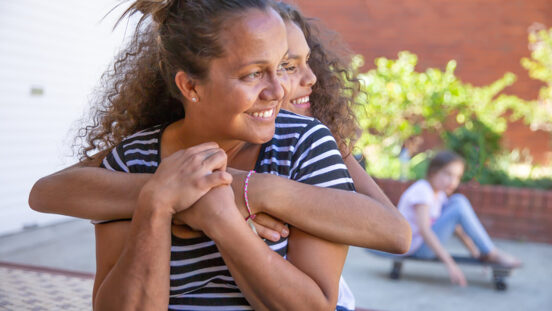Are we raising a generation of school sleepwalkers?
67% of parents shared that sleep challenges were on the rise in their home during this first semester back at school.
By Aloni Benau, Glow Dreaming co-founder
Sleep. A word that sends a shiver down the spine of any parent.
For those who did the hard sleep yards with their babies – maybe even paying the big bucks for sleep school – you may now be finding yourself back to the future with sleep issues resurfacing. Only this time, the kids are bigger, and the issues are manifesting in the classroom as well as the home.
At Glow Dreaming, 67 percent of parents have told us that in their home’s sleep challenges are on the rise.
Why? This could come down to a combination of factors, including too much screen time and not enough outdoor activity, but a consistent contributor is the constant change in routines.
Psychologist Leanne Oshry, who specialises in working with children, has seen an increase in behavioural sleep problems since the COVID pandemic.
“The world has felt unsafe and threatening with the virus, prolonged uncertainty, loss of structure and routine. This may have culminated in regressive behaviours with an increased resistance to sleep,” she said.

The pandemic’s constant change in routines is a major contributing factor for resurfacing sleep issues in children.
Dr Oshry highlights the side effects of poor sleep can be very serious and result in a multitude of physical, emotional, behavioural, social and cognitive problems.
“Children may have less energy, poor immune system function, heightened anxiety and less tolerance. Their ability to focus and concentrate on tasks can also be diminished.”
While problematic at home, teachers will tell you that these side effects can be extremely challenging in the classroom. Particularly if there’s several kids in the one class who are short on sleep.
Primary school educator Rebecca Condon said children tend to flare up quickly and have very short tempers when they lack sleep.
“The children can be extra sensitive, reluctant to participate and tend to have trouble concentrating on simple tasks. Sleep disturbances are particularly obvious when reading. They can mechanically read the words but have no comprehension of what they’ve read. There can be a multitude of factors impacting comprehension but often we discover a sleep problem at the core,” Mrs Condon said.

Aloni Benau, Glow Dreaming co-founder, discusses why sleep challenges are on the rise.
Assistant School Principal Bradley echoed these observations at the senior school level.
“Sleep is a key factor in contributing to a student’s health (both physically and mentally) and cognitive function. If a young person is getting enough quality sleep, they can transfer knowledge from their short term or working memory into long term memory. If students do not have enough quality sleep, they are more likely to struggle with their studies,” he said.
According to Bradley, most students aged five to 12 years need more than nine hours but are only getting around seven.
The good news is, despite the continuing rocky road, quality sleep is not out of reach for most children.
The Glow Dreaming Sleep Team recommend these top tips:
- Talk to kids about the benefits of a good sleep routine – help them understand the importance of it for play and learning. Kids are more likely to accept a change if they understand why they’re doing it.
- For younger children, use a visual planner so kids can see what’s happening (and when) in the lead up to bedtime. This helps to manage expectations and reduce likelihood of pushback.
- Reduce noise levels in the home. FOMO is a real thing for kids, so the less exciting things are outside their bedroom the more likely they are to relax and fall asleep.
- When travelling aim to keep the routine as consistent as possible, make sure to pack a favourite soft toy and book. Changes in noise and surroundings may be anxiety inducing so keeping the bedtime ritual the same will help to calm your child.
- Aim to remove screens one hour before bedtime so the body can build up its melatonin levels. Acknowledge this may be a big change for the kids and there may be resistance but be clear and consistent about the boundaries.
For more tips and advice on how to get your kids the best night’s sleep visit glowdreaming.com, Australia’s leading experts in sleep.




